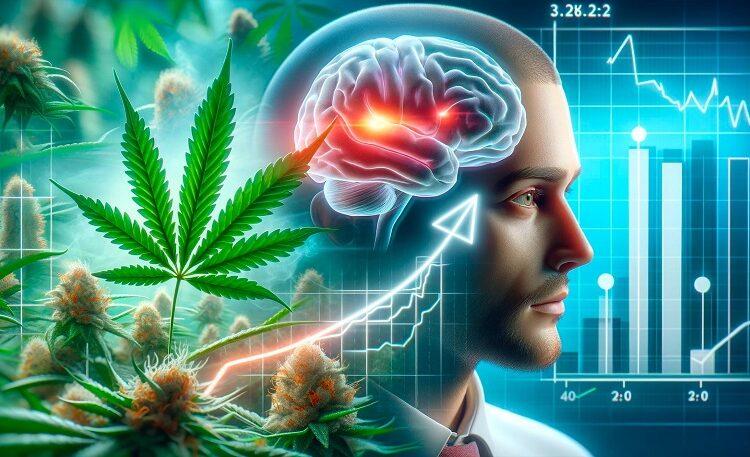Trichomes change color from clear to milky white or amber, indicating the ideal time for harvesting. After harvest, the buds need to be dried and cured. Drying involves hanging the buds upside down in a dark, well-ventilated area to remove excess moisture. This process can take up to two weeks. Once the buds are dry, they are placed in airtight containers for curing. Curing allows the buds to develop their full aroma, flavor, and smoothness. Properly cured cannabis can be stored for months without losing its potency. Finally, it is time to enjoy the fruits of your labor. Cannabis can be consumed in various ways, including smoking, vaporizing, or using it in edibles. Each method offers a unique experience and allows users to benefit from the plant’s medicinal and recreational properties. In recent years, there has been a growing interest in the potential medical benefits of cannabis. Once stigmatized and demonized, this plant is now experiencing a renaissance as researchers and medical professionals uncover its therapeutic properties. From pain management to mental health disorders, cannabis is proving to be a valuable tool in modern medicine. One of the most well-known uses of cannabis is for pain relief.
The plant contains compounds called cannabinoids, which interact with the body’s endocannabinoid system to reduce pain and inflammation. This has led to the development of cannabis-based medications for chronic pain conditions such as arthritis and multiple sclerosis. Unlike traditional painkillers, cannabis is not addictive and has fewer side effects, making it a safer alternative for long-term use. Another area where cannabis is making waves is in the treatment of mental health disorders. Studies have shown that cannabinoids can help alleviate symptoms of anxiety, depression, and post-traumatic stress disorder (PTSD). These conditions often involve an imbalance in the brain’s neurotransmitters, and cannabis can help restore this balance. Additionally, cannabis has been found to have neuroprotective properties, which may be beneficial for conditions such as Alzheimer’s disease and Parkinson’s disease. Epilepsy is another condition that has seen remarkable improvements with the use of cannabis. Cannabidiol (CBD), a non-psychoactive compound found in cannabis, has been shown to reduce the frequency and severity of seizures in patients with epilepsy. In fact, the U.S. Food and Drug Administration (FDA) has approved a CBD-based medication for the treatment of certain types of epilepsy, highlighting the potential of cannabis in this field. Cannabis is also being explored as a potential treatment for cancer.
Studies have shown that cannabinoids can inhibit the growth of cancer cells and induce apoptosis, or programmed cell death. Additionally, cannabis can help alleviate the side effects of cancer treatments such as chemotherapy, including nausea, vomiting, and loss of appetite. While more research is needed, these findings offer hope for cancer patients seeking alternative therapies. Furthermore, cannabis has shown promise in the field of neurology. Research suggests that cannabinoids can help manage symptoms of conditions such as multiple sclerosis and amyotrophic CANNABIS DISPENSARY lateral sclerosis (ALS). These conditions involve the degeneration of nerve cells, and cannabis may help protect and repair these cells, slowing down the progression of the disease. Despite the growing evidence of its medical benefits, cannabis still faces legal and social challenges. Many countries and states have strict regulations surrounding its use, making it difficult for patients to access this potentially life-changing treatment. However, as more research emerges and public opinion shifts, there is hope for a greener future where cannabis is embraced as a legitimate medicine. In , the renaissance of cannabis in modern medicine is an exciting development. From pain relief to mental health disorders, epilepsy to cancer, this plant has the potential to revolutionize the way we approach healthcare.
As more research is conducted and regulations are reevaluated, we may witness a shift towards a more inclusive and holistic approach to medicine, where cannabis plays a vital role in improving the lives of countless individuals. The green revolution is here, and it’s time to embrace the potential of cannabis in modern medicine. Cannabis, also known as marijuana, has been a topic of controversy and debate for decades. With its legalization in many parts of the world, it is essential to separate fact from fiction and debunk the myths surrounding this plant. By embracing the facts, we can have a more informed and rational discussion about cannabis. One of the most common myths about cannabis is that it is a gateway drug, leading users to experiment with more dangerous substances. However, numerous studies have shown that there is no direct causal relationship between cannabis use and the use of harder drugs. In fact, the majority of cannabis users do not progress to using other drugs. This myth has been perpetuated by misinformation and fear, rather than scientific evidence. Another myth surrounding cannabis is that it is highly addictive. While it is true that some individuals may develop a dependence on cannabis, the addiction potential is relatively low compared to other substances such as alcohol or tobacco.
According to a study published in the Journal of Addiction Medicine, only about 9% of cannabis users develop a dependence. This is significantly lower than the addiction rates for alcohol and tobacco, which stand at around 15% and 32%, respectively. Furthermore, cannabis has been wrongly associated with negative health effects. One common myth is that cannabis use leads to lung cancer, similar to tobacco smoking. However, research has shown that cannabis smoke does not contain the same carcinogens as tobacco smoke. A study published in the Journal of the American Medical Association found no significant association between cannabis use and lung cancer. In fact, some studies have even suggested that cannabis may have anti-cancer properties. Additionally, cannabis has been stigmatized as a drug that impairs cognitive function and leads to decreased motivation. While it is true that acute cannabis use can temporarily impair cognitive abilities, these effects are short-term and do not have long-lasting consequences. A study published in the journal Addiction found that chronic cannabis use does not lead to significant cognitive decline. Moreover, cannabis has been used medicinally to alleviate symptoms of various conditions, such as chronic pain, epilepsy, and multiple sclerosis, suggesting that it can have positive effects on individuals’ well-being.







